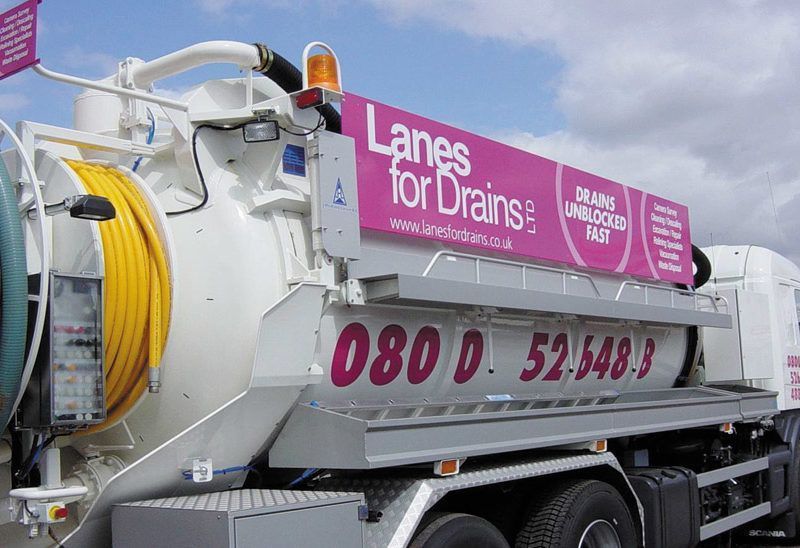Lanes called in to clean sewage works filter pipes

Lanes Group engineers have used their powerful jet vac technology to remove more than 50 tonnes of sludge from two discharge pipes at a large water treatment works.
The cast iron pipes, both 270 metres long, are designed to take sludge-filled water to settling lagoons at the Huntington sewage works in Chester, Cheshire.
Over a number of years, they had become increasingly clogged with sludge, so Lanes engineers based at the Chester depot, were called in to give them a thorough clean.
The work was commissioned by GCA, a joint venture between Galliford Try, Costain and Atkins, who undertake improvement schemes to the United Utilities southern area.
Ian Clapham, Lanes area development manager based in Chester said: “The biggest challenge was the length of the pipes and the large amount of sludge they contained.
“GCA carried out enabling works, including an excavation to gain access to pipes. We then used a JHL recycler jet vac tanker and a tracked remote jetting reel to tackle the sludge.”
The portable jetting reel was attached to the recycler jet vac and used to clean out the sludge, which included a large amount of carbon filter media, up to its 200 metre capacity.
The jet vac tanker’s own jetting hose was then attached directly to the jetting reel hose to provide the extra 70 metre extension required to complete the task.
A total of 55 tonnes of sludge was collected from the pipes, and taken, in seven separate loads, to be deposited in the settling lagoon, where it should have gone in the first place.
To complete the project, Lanes carried out a CCTV drainage survey to show the jetting work had been a success.
Ian Clapham said: “Pipes like these in water treatment works rarely need cleaning in this way. They are built to be largely self-cleaning. However, due to quirks of design, some pipes can clog up.
“This project demonstrates we have the technology to quickly and cost-effectively respond to such problems and, within hours, empty sludge pipes that have taken decades to fill up.”







